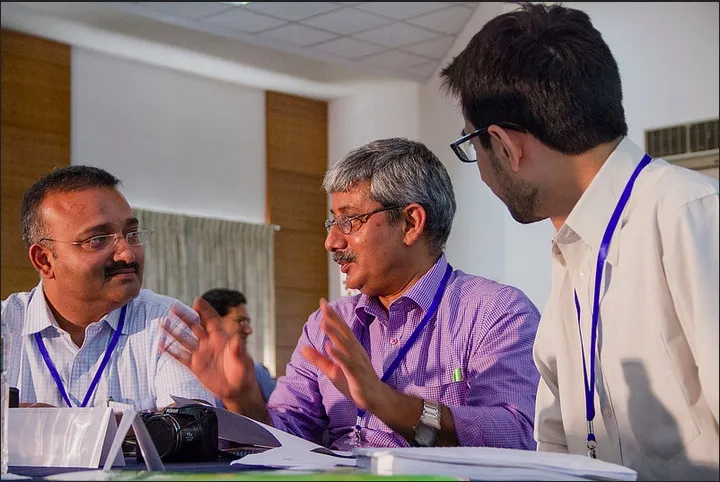‘If we don’t fix education we will live a demography nightmare,’ says Ranajiit from ASER Centre
Education is one of the biggest problems in developing countries. Either it is not accessible to everyone or the quality is way below the standard. In terms of access to education, statistics from 2007 reveal that there are 182 millions children enrolled in 1.04 elementary schools, which is 82% of the children between 5 and14 years. But the situation gets worse when we start talking about the quality of education and of learning outcomes.
During the Frugal Innovation Forum organised by BRAC in Dhaka, we had a chance to speak with Ranajiit Bhattacharyya, General Manager of Aser, who gave us an interesting perspective about the problems in education in India. “ASER Centre is the research and assessment wing of Pratham Education Foundation, which is working in the field of primary education trying to solve issues of quality. ASER centre is best known for its survey called, ‘The annual survey of education report’. It has been done every year since 2005, and I’m associated with that since the beginning. We assess the learning outcomes of rural primary school children. It is a household-based and not school-based service. We measure the basic reading and mathematical ability of children from 5 to 16 years. Over a period of time, we have recorded that the learning levels are not very high. It’s pretty stagnant. Just to give you an idea, ASER has recorded that over 50% of the children in class 5 could not read standard 2 level text. In 2010, it was 47%,” explains Ranajiit.
One of the most important aspects of this survey is that it is able to interview 700,000 people every year. “Every year, 30 villages are chosen in each district and in every village 20 households are chosen. Local partners conduct the survey. Our role is to design the survey, train the partners and then we analyse the date and create the report that is usually published in January,” says Ranajiit.
Considering the great success that the survey has had in India, they have started to replicate this in other countries as well. “ASER processes have been replicated in Pakistan, Tanzania, Uganda, Kenya and Mali. BRAC has shown interest in replicating it also in Bangladesh and we are currently working on it. What’s important is that each country observes our process and then adapts it to its own necessity,” adds Ranajiit.
Behind the shocking results of the annual survey of education report there is a sad reality. “Without mastering competencies of reading standard 2 level or simple subtraction or division, a child cannot progress through a school system. They cannot learn without mastering this. What we have noticed is that in any class there is a wide variation in ability. Some children are in a good level, some just recognise letters, while others just recognise words. Teachers are not trained to pick the diverse learning ability among children so they teach by curriculum, and are always in a rush to finish it. They are simply not trained to pick those children,” says Ranajiit.

What’s the solution to solve this huge problem? Fixing the education system according to the needs of the children. “What we are advocating now, and some governments are piloting it, is that during the school time, groups of children from standards 3, 4 and 5 are clubbed according to their abilities. So all the children who can just recognise letters are grouped together, same for the ones who recognise words and they are taken through a short intervention. There are different methods that facilitates, within a period of three months, a child to read fully,” advices Ranajiit.To conclude the interview we asked Ranajiit what was, in his opinion, the role of education in the future of India. His answer clearly shows the role that education will play. “Education is very important in India because we are a very vast country both in terms of size and population and because we are a very young country. 65% of our population is under 35 and we are set to become the youngest country in the world. If we are producing so many non readers and if we are not addressing the issue of non learning, we could find ourselves in a demography nightmare,” concludes Ranajiit.
This article is part of a series of interviews that were taken at the 2014 BRAC Frugal Innovation Forum: Scaling Digitally. Please visit here to find other article in the series.







